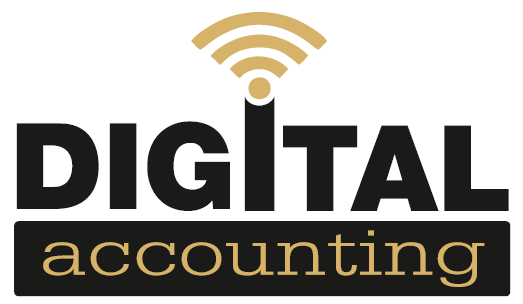In the first Labour Budget in 14 years, Chancellor Rachel Reeves introduced several major tax and spending changes aimed at “rebuilding Britain.” These measures cover a broad range of policies that could impact your business, including adjustments to National Insurance, Corporation Tax, business rates, and more. Here’s a summary of the changes that are most relevant for small business owners and landlords.
Major Changes to Employer’s National Insurance
From April 2025, employers will face changes in the rates, thresholds, and allowances for Employer’s National Insurance (NI):
- Increased Rate: The rate for Employer’s NI, a Class 1 NI contribution that employers pay to HMRC on their employees’ wages, will increase from 13.8% to 15%, effective April 6, 2025.
- Lower Threshold: The earnings threshold at which Employer’s NI becomes payable will decrease from £9,100 to £5,000. As a result, employers will be subject to the new, higher NI rate on a larger portion of earnings.
- Employment Allowance Increase: The Employment Allowance, which allows eligible employers to reduce their Employer’s NI bill, will increase from £5,000 to £10,500 starting in April 2025. The £100,000 eligibility threshold will be removed, enabling more small businesses to benefit. However, companies that only pay Employer’s NI on the wages of one employee who is also a director will remain ineligible.
To learn more about Employer’s National Insurance and specific contributions, including rebates and special rates, check the HMRC website.
Increase in National Living Wage
As previously announced, the National Living Wage for adults aged 21 and over will rise by 6.7% to £12.21 per hour from April 2025, which equates to an annual increase of £1,400 for full-time employees. The National Minimum Wage for 18 to 20-year-olds will increase from £8.60 to £10 an hour, marking a first step towards aligning the National Minimum Wage with the National Living Wage, with a long-term goal of a single adult wage rate. Wage increases for those under 18 and apprentices will also be implemented, with the minimum hourly rate for both groups set at £7.55. These changes will affect the pay of an estimated three million eligible workers.
Renewed Commitment to Making Tax Digital for Income Tax
The government confirmed its commitment to implementing Making Tax Digital for Income Tax (MTD IT). This initiative will require qualifying businesses and landlords to maintain digital records and submit quarterly updates to HMRC using compatible software:
- Starting in April 2026, MTD IT will apply to self-employed individuals and landlords with qualifying income (not profit) above £50,000.
- From April 2027, this threshold will be reduced to include those with income above £30,000.
- Eventually, those with qualifying income over £20,000 will also be included by 2029, with the timeline for this group to be confirmed later.
MTD IT aims to streamline tax reporting and improve compliance.
Increased Interest Rates for Late Tax Payments
As part of a broader effort to “close the tax gap,” the government will raise the interest rate on overdue tax payments by 1.5 percentage points, from the current rate of the Bank of England base rate plus 2.5% to the base rate plus 4% starting April 6, 2025. This will apply to unpaid Income Tax, Capital Gains Tax, and certain National Insurance contributions when they’re not paid by the relevant deadlines.
New Corporate Tax Roadmap
The Chancellor also introduced a new Corporate Tax roadmap, which includes:
- Corporation Tax Cap: The headline Corporation Tax rate will remain capped at 25% throughout the current parliament.
- Small Profits Rate: Companies with profits under £50,000 will continue to benefit from the 19% Small Profits Rate, while Marginal Relief, applicable to companies with profits between £50,000 and £250,000, will also stay at current rates and thresholds.
- Full Expensing Extension: Full expensing will continue, allowing limited companies to claim 100% first-year tax relief on qualifying investments. The government has also pledged to consider expanding full expensing to assets purchased for leasing or hire.
- Annual Investment Allowance: The Annual Investment Allowance will remain set at £1 million, providing 100% tax relief for qualifying equipment purchases by all businesses, including small businesses.
- Research and Development (R&D) Tax Relief: Corporation Tax relief for R&D will remain unchanged, with the rates for the R&D Expenditure Credit (RDEC) scheme and Enhanced Support for R&D Intensive SMEs staying in place.
Changes to Business Rates
For retail, hospitality, and leisure properties in England:
- Reduced Relief: Relief will continue, but the discount will decrease from 75% to 40% in 2025/26, with a cap of £110,000 per business.
- Small Business Multiplier Freeze: The small business multiplier, which determines business rates for properties with a rateable value below £51,000, will remain at 49.9p for the 2025/26 period.
- Future Reductions in Business Rates: To level the playing field between high-street businesses and online retailers, the government has pledged to lower business rates multipliers for retail, hospitality, and leisure properties from 2026/27 onward.
Fuel Duty Freeze
Fuel duty will remain frozen for an additional year, extending the temporary 5p cut first introduced in 2022 until March 22, 2026. This move is expected to save the average car driver £59 in the 2025/26 fiscal year.
Increased Stamp Duty on Additional Properties
From October 31, 2024, the Higher Rate of Stamp Duty Land Tax for additional property purchases (such as second homes, buy-to-let properties, and corporate purchases) will rise from 3% to 5%.
Capital Gains Tax Increases
From October 30, 2024:
- The lower Capital Gains Tax (CGT) rate will increase from 10% to 18%, and the higher rate will rise from 20% to 24%, bringing these in line with the rates on residential property, which remain unchanged at 18% and 24%.
- Relief on CGT: Business Asset Disposal Relief (BADR) and Investors’ Relief (IR), which offer a reduced rate on gains from the sale of business assets or investments, will see a phased rate increase:
- The CGT rate for BADR and IR will rise to 14% for disposals on or after April 6, 2025.
- A further increase to 18% will apply to disposals made on or after April 6, 2026
Personal Taxes: Rate Freeze Ends in 2028
While the rates for Income Tax, VAT, and National Insurance remain the same, the freeze on tax thresholds will end in 2028. The freeze, which has gradually pushed more people into higher tax bands (“fiscal drag”), was expected to be extended, but the Chancellor confirmed that it will conclude as scheduled.
Changes to Business Relief for Inheritance Tax
For businesses, the Inheritance Tax Business Relief thresholds have been adjusted:
- The 100% relief rate will apply to the first £1 million in business and agricultural property.
- Any property value exceeding £1 million will qualify for the 50% relief rate.
For more in-depth information on all changes in the Budget, you can refer to the government’s full report.



